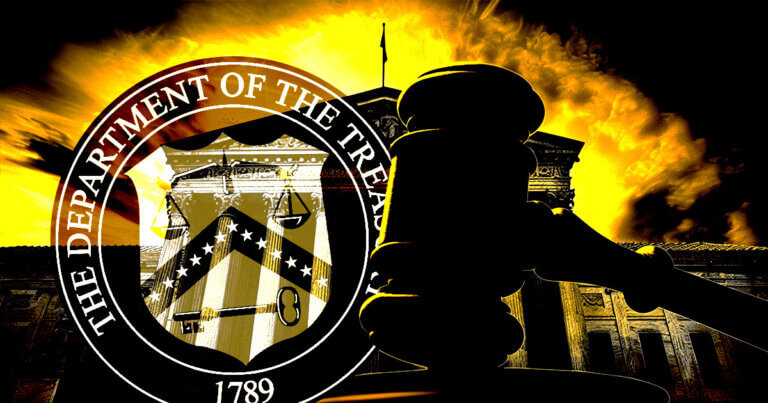 Senate bill could target crypto protocols due to broad language on digital assets
Senate bill could target crypto protocols due to broad language on digital assets Senate bill could target crypto protocols due to broad language on digital assets
Section 423 of the Intelligence Authorization Act could limit transactions for major DeFi protocols and stablecoins if they facilitate prohibited transactions.

Cover art/illustration via CryptoSlate. Image includes combined content which may include AI-generated content.
This week, a bill placed on the Senate calendar introduces several provisions that could impact digital asset protocols and tokens. Although it does not explicitly ban digital asset protocols, its broad scope could allow it to become an attack vector for anti-crypto aspects of the US government.
The Senate Select Committee on Intelligence passed the Intelligence Authorization Act for Fiscal Year 2025 (IAA) by a unanimous 17-0 vote in May, as Senator Warner’s office reported. The bill, S. 4443, authorizes funding, provides legal authorities, and enhances congressional oversight for the US Intelligence Community (IC).
Specifically, Section 423 of the bill allows the Secretary of the Treasury to impose sanctions prohibiting transactions between any US person and a “foreign digital asset transaction facilitator” who has knowingly facilitated significant transactions with foreign terrorist organizations, specially designated global terrorist organizations, or other sanctioned entities. The definition of “foreign digital asset transaction facilitator” is broad, covering any foreign person or group that “controls, operates, or makes available a digital asset protocol or similar facility, or otherwise materially assists in the purchase, sale, exchange, custody, or other transaction involving an exchange or transfer of value using digital assets.”
While this does not constitute an outright ban, even protocols such as Aave, Uniswap, or stablecoins like USDT could potentially be designated as sanctioned “foreign digital asset transaction facilitators” if they are determined to have knowingly facilitated prohibited transactions with sanctioned entities. This could restrict US persons from transacting with them. However, the bill does not ban these protocols or tokens outright solely for being potentially accessible to sanctioned entities. There would need to be a determination that they knowingly facilitated prohibited transactions.
“FOREIGN DIGITAL ASSET TRANSACTION FACILITATOR.—The term “foreign digital asset transaction facilitator” means any foreign person or group of foreign persons that, as determined by the Secretary, controls, operates, or makes available a digital asset protocol or similar facility, or otherwise materially assists in the purchase, sale, exchange, custody, or other transaction involving an exchange or transfer of value using digital assets.”
Tether has frequently complied with requests to freeze tokens for US-sanctioned entities. Regardless, US institutions have repeatedly targeted it for allegedly allowing such activity, with competitor Circle adding to the rhetoric in front of Congress earlier this year. Aave, Uniswap, and others banned wallets that interacted with TornadoCash to comply with US sanctions in 2022. Still, if the Treasury deems previous interactions as “materially assisting” sanctioned entities, this new legislation could target them, in the worst-case scenario, the crypto industry.
Given the bill’s importance and historical context, it is likely that some form of the Intelligence Authorization Act for Fiscal Year 2025 will pass. However, the exact provisions, especially those related to digital assets and protocols, may be subject to changes during the legislative process. The bill’s progress and any amendments will need to be monitored to understand its final impact on open-source protocols and decentralized tokens.
Per Senator Warner’s office, the bill has cleared a significant hurdle by being reported favorably by the Select Committee on Intelligence and placed on the Senate calendar for further consideration. This indicates strong support and a positive trajectory through the legislative process.
Ultimately, the bill aims to enhance oversight and potential sanctions around digital assets but does not constitute an outright ban on major DeFi protocols or stablecoins at this point. Their operations could face restrictions if they are found to have facilitated prohibited transactions with sanctioned entities, necessitating careful compliance and fair treatment by regulatory authorities.



 CoinGlass
CoinGlass 


 Farside Investors
Farside Investors 








































































































